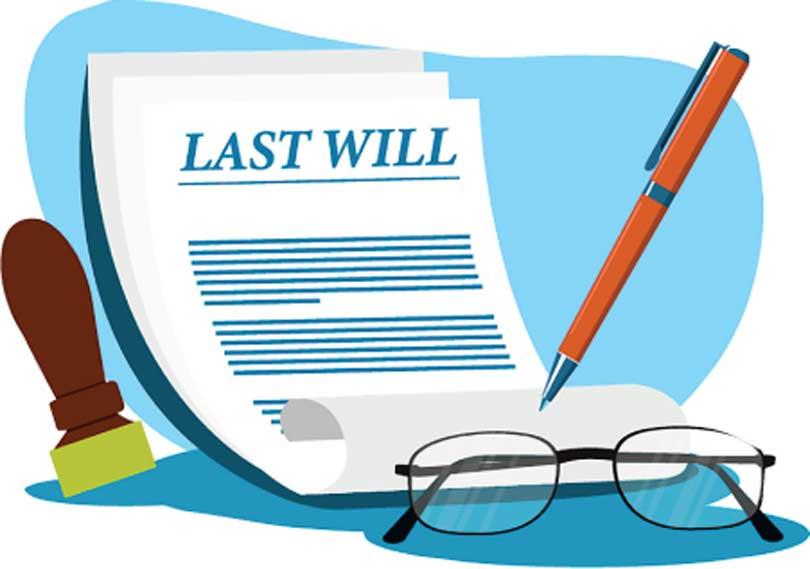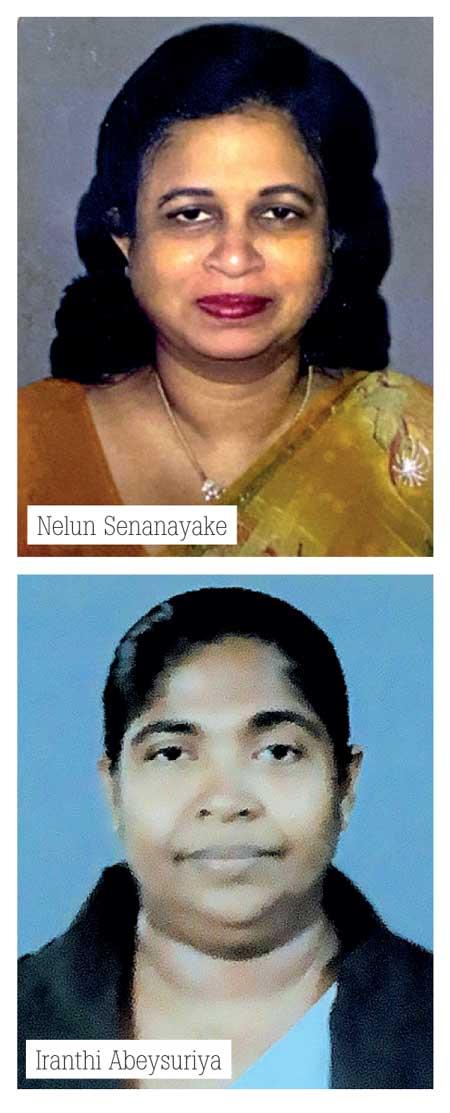
After the person’s death, the deceased person’s assets will be distributed according to the Last Will to its beneficiaries
When you are signing a Last Will you should be in good health and in sound mind and the two witnesses who will be signing should be able to attest that you are in good mental condition. As per the new amendments, a very recent picture of yourself will have to be affixed on the Last Will.
No one likes to think about their own death, but preparing end-of-life documents, such as a Last Will and Testament, can give you a great peace of mind, knowing that your wishes will be followed when you’re gone and your loved ones are cared for. While many are now opting to execute their Last Wills, the majority are still cautious. Some are unsure of how to create a will or if they even have the assets necessary for one, while others are concerned about the expense and time associated with the entire procedure.
Senior Attorneys-at-Law and Notaries Public, Nelun Senanayake and Iranthi Abeysuriya spoke with Daily Mirror - Life to answer our questions on what you need to know about writing a Last Will, and the consequences of not having one.
Q: Why should I make a Last will?
You should make a Will to make life easier for your loved ones after you pass away. The best time to make a last Will is when you are healthy, and you are of sound mind. So, it is advised to do so when you are young as we are unaware when we will die. Please note that even after executing a last will, it can be changed any amount of times and as you wish.
Q: What happens if I don’t have a Last will?
If there is a Last Will, after the person’s death, the deceased person’s assets will be distributed according to the Last Will to its beneficiaries (whoever it may be).
But if there is no Last Will, and your assets are over Rs. 4 Million, a testamentary case has to be filed for it to be distributed amongst your heirs which will be divided and distributed according to the Sri Lankan Laws of Succession. That is, if the deceased person is married – ½ to the spouse and the other ½ to be equally divided amongst the children and if they are married without any children - ½ to the spouse and the remaining ½ to the parents. If unmarried - ½ of your assets to your parents and the remaining ½ to your siblings and so on where there are further succession laws involved.
 Q: Do I need to own
Q: Do I need to own a certain value of assets to prepare a Last will?
There is no minimum value of assets needed to prepare a Last Will. Even if you have only 10 books in your possession you can still make a Last Will to assign who gets possession of those books. The best part of a Last Will is that you will part with your possessions only after death and you are able to give these possessions to the people whom you want to give them to. It doesn’t have to be your wife or children, it may be a friend, a loved one, a distant relative or even a secret lover.
Note: If you are in possession of Land and have bequeathed it to one or more parties through a Last Will, it can be gifted without paying any stamp duty, while on the other hand if you execute a Deed of Gift, Stamp Duty will have to be paid to the value of the Property.
Q: How do I prepare my Last will, what is the procedure?
Any Notary Public or any Lawyer who does Conveyancing can prepare your Last Will. Firstly, you must give your request in writing, properly listing down which assets will be distributed to whom and how the distribution is to be made. Then you have to appoint an Executor/Executrix to execute your Will after your death – you can even appoint a beneficiary under the Will as an Executor/trix. You can also name a few people (3 or 4) in the Last Will where either of them can be the Executor/trix.
As for registration, since a Last Will is a very private document, it will not be sent for registration. There will be only 02 copies of the Last Will, where 01 copy will be with the Testator/ trix and the other copy will be with the Lawyer/ Notary Public.
Q: What can I put in the Will?
Anything! All your present and future assets can be included in the will and whatever that is lying around at the time of death can be given away in a Last Will. As for the beneficiaries, anyone can be named as a beneficiary - may it be a person, a company, a NGO, a society, a charitable organisation, a religious organisation etc.
Q: How is the Will activated?
Once you die, the person in whose keeping or custody the Last Will is, shall have the Will deposited, or who shall find such a Will after the testator’s death, shall produce the same to the District Court of the district in which such depository or finder resides, or in the District Court of the district in which the testator shall have died, within 3 months after the finding of the Will. Since a testamentary case is a procedural matter-provided that there is no one to contest the Will – it may not take a long while, but the length of the case depends from court to court.
Q: Is making a will expensive? Can I make a will without a lawyer?
As per the new Amendments in 2022, a valid Last Will cannot be made without a Lawyer. Executing your Last Will is not an expensive process, especially if you compare it with the cost your loved ones will have to incur to distribute your assets once you pass off without a Last Will.
Q: Can my partner and I have a joint will?
Yes, you can have a Joint Will.
Q: What happens if a beneficiary under my Last will dies before me, do I need to change my will?
Yes, you will have to, unless you have mentioned in your will what will happen to the asset if that beneficiary is to predecease. However, you will not need to write a whole new Will, you can make a change to your existing Will by way of a Codicil.
Q: Where do I keep my Last will after executing it?
You may keep your Last Will with your other important documents so that once you pass, they can find it amongst your important documents, or you may give it to one of your loved ones to hold it on for you. Another option is you can ask your Lawyer to hold onto your Last Will and at the time of death, they will call a meeting with your beneficiaries and inform them the contents on your Will.
Q: What more should I know about theSri Lankan law on wills and dying intestate?
Overall, when you are signing a Last Will you should be in good health and in sound mind and the two witnesses who will be signing should be able to attest that you are in good mental condition and in sound mind. As per the new amendments, a very recent picture of yourself will have to be affixed on the Last Will.

 Q: Do I need to own
Q: Do I need to own